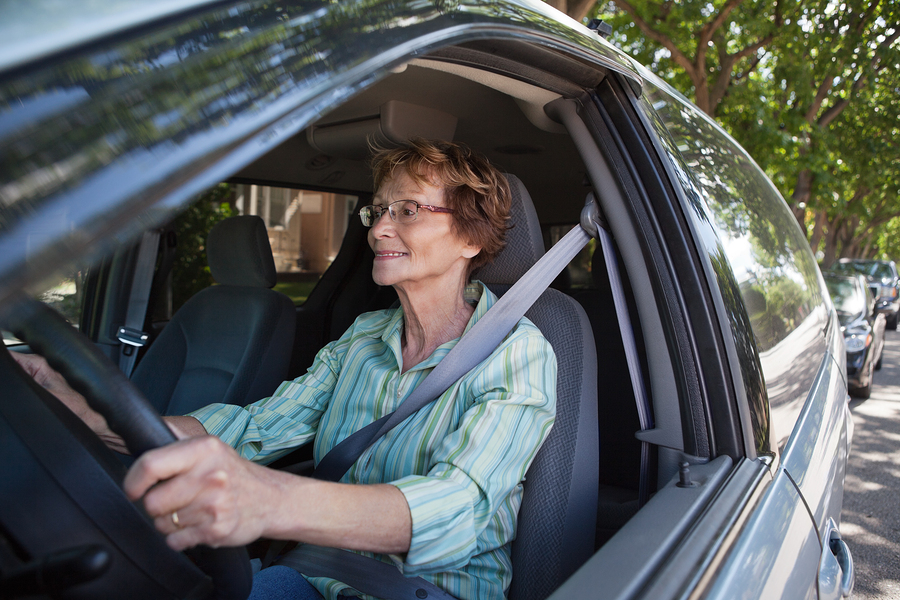When Should Seniors Stop Driving, and How Can Home Care Help?
Category:

Driving represents independence, but it also carries a great deal of responsibility. It is critical to be aware of the changes that occur as we age, particularly in our driving ability. Senior drivers may have to give up their keys at some point, which is not an easy decision for either the senior or their family. This article will go over the signs that a senior should stop driving, how to have the no-driving conversation, and how home care can help with transportation needs.
"It’s not about not driving; it’s about finding new ways to maintain independence."
What Are the Warning Signs That a Senior Should Give Up Driving?
The following are some indicators that a senior should stop driving:
Poor vision: If a senior is having difficulty seeing the road or identifying road signs, it may be time to retire.
Slow reaction time: As we get older, our reaction time slows, making it more difficult to respond quickly to unexpected road situations.
Confusion or disorientation: If a senior becomes lost or disoriented on familiar roads, it may be time to pull over.
Coordination issues: If a senior is having difficulty using the foot pedals or steering, it may be time to stop driving.
Physical limitations: Arthritis, Parkinson’s disease, and other physical conditions can make driving safely difficult for a senior.
Multiple accidents or traffic violations: A senior who has multiple accidents or traffic violations may need to stop driving.
How to Have the No-Driving Conversation with an Aging Loved One
It can be difficult to talk to a senior about giving up their keys. Here are some pointers to help make the conversation go more smoothly:
- Plan the conversation ahead of time: Choose a time and location when the senior is relaxed and willing to talk.
- Show your love and concern for their well-being, and explain that you only want the best for them.
- Provide alternative transportation options: Provide them with options such as public transportation, carpooling, or hiring a driver.
- Allow the senior to express their concerns and emotions, and then listen to what they have to say.
- Be patient: Giving up driving is a big change for a senior, and it may take some time for them to adjust.
How Does Home Care Help with Transportation?
Home care services can assist seniors who are unable to drive with transportation needs. Here are some examples of how home care can assist:
- Transportation to and from appointments: Home care services can provide transportation to and from appointments for seniors.
- Home care services can assist with grocery shopping as well as other errands that the senior may require.
- Transportation to social activities: Home care services can provide transportation for seniors to social activities and events.
- Transportation to and from the home: Home care services can transport seniors to and from their homes, making it easier for them to receive the care they require.
The Advantages of Home Care for Seniors Who Cannot Drive
There are numerous advantages for seniors who are unable to drive, including:
- Increased safety: Seniors can reduce their risk of accidents and injuries by using home care services for transportation.
- Improved health: Home care services can provide transportation to appointments, ensuring that seniors receive the medical care they require.
- More independence: Home care services can assist seniors with errands and social activities, allowing them to maintain their independence and participate in community activities.
- Peace of mind: Knowing that the senior is receiving reliable transportation services can provide peace of mind for both the senior and their family.
- Convenient transportation: Home care transportation is a convenient option for seniors because they can schedule rides at their leisure.
Statistics About Seniors and Driving
- According to the Centers for Disease Control and Prevention (CDC), the number of senior drivers is increasing, and by 2030, more than 40 million senior drivers are expected to be on the road.
- According to the AAA Foundation for Traffic Safety, older drivers are less likely to be involved in fatal crashes, but when they are, they are more likely to be injured or killed.
- According to the National Highway Traffic Safety Administration (NHTSA), senior drivers are more likely to be involved in intersection crashes and have a higher rate of single-vehicle crashes than younger drivers.
Finally, when it comes time for seniors to stop driving, it is critical to have an open and honest conversation with them. Transportation can be provided by home care services for seniors, allowing them to maintain their independence and remain active in the community. Seniors can receive the care they require while also having peace of mind that they are being transported safely with the assistance of home care transportation.
Subscribe
Date: February 9, 2023
Category: